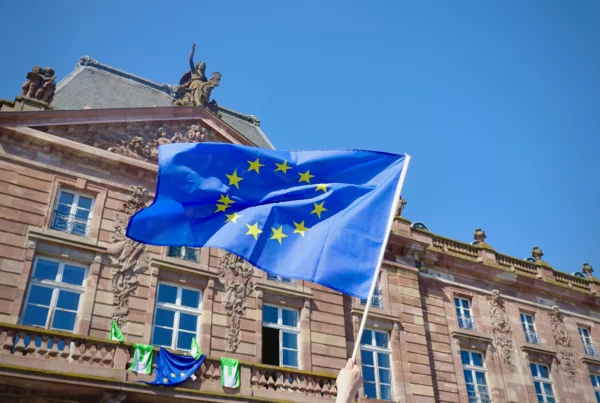How the 1953 European Charter of Municipal Liberties laid the groundwork for local self-government in Europe
In October 1953, more than one thousand mayors and local representatives from 16 European countries gathered in Versailles for a historic assembly. Out of their debates emerged the European Charter of Municipal Liberties, a pioneering text that recognised the essential role of municipalities in safeguarding democracy, peace, and citizen freedoms. Drafted and adopted under the auspices of the Council of European Municipalities, it was one of the first pan-European commitments to local democracy, years before the binding European Charter of Local Self-Government (1985).
The Charter of 1953 marked a crucial step in Europe’s post-war reconstruction: ensuring that citizens had a say in shaping their communities, free from arbitrary authority, and rooted in centuries-old traditions of liberty and human dignity.
The Charter of Municipal Liberties defined local self-government as the cornerstone of democratic societies. It emphasised that municipalities were the very foundation of nations, where citizens had the right and duty to participate in local life.
Key principles included:
- Constitutional guarantees: Municipal liberties must be enshrined in law and safeguarded by independent courts.
- Autonomy in decision-making: Municipalities should decide on local matters, adapt national laws to local circumstances, and manage their own staff and administration.
- Financial independence: Local authorities should raise their own taxes and resources to meet citizens’ needs, with systems of compensation available for those with weaker resources.
- Checks and balances: Municipal decisions could only be controlled for legality, and boundaries could not be altered without consulting the affected population.
- International cooperation: Municipalities and their associations had the right to belong to international organisations to defend their interests and strengthen European unity.
The Assembly also adopted a Resolution on Municipalities and European Institutions, declaring municipal self-government the “bulwark of personal liberties” and calling for local authorities to have a voice in the emerging European political community.
The European Charter of Municipal Liberties (1953) was a visionary document that helped establish the principle that democracy begins at the local level. At a time when Europe was rebuilding from the devastation of war, it placed municipalities at the heart of political, social, and economic renewal.
Though not legally binding, the Charter inspired decades of work to protect and strengthen municipal autonomy across Europe. It laid the moral and political foundation for the European Charter of Local Self-Government (1985), which gave these principles full legal recognition.
Seventy years on, the 1953 Charter stands as a testament to the determination of Europe’s mayors and local leaders to defend liberty, democracy, and cooperation across borders, values that continue to shape Europe’s governance today.
For more information, contact:

Senior Advisor – Governance & Institutional Relations






